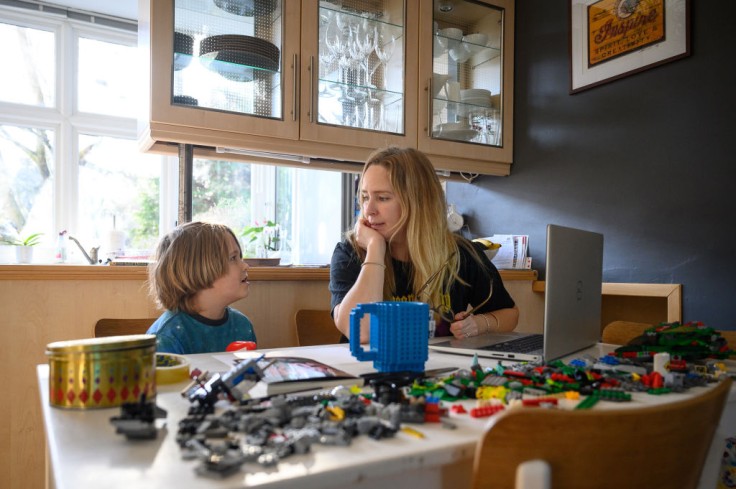
Juggling a career and a family can be a daunting task, and it is common for parents to feel overwhelmed and stressed.
Keeping work and family separate is a challenge many families face every day. Many parents struggle to balance their work commitments with family responsibilities, often leading to spillover stress.
Spillover stress occurs when the stressors from one domain spill over into another, making it difficult to separate work and family life.
According to CNBC, a 2022 study conducted by Ohio State University revealed that 66% of working parents in the United States experience parental burnout, largely caused by stress that spills over from home to work.
This can lead to burnout, poor mental health, and strained relationships. Fortunately, there are ways to manage spillover stress and maintain a healthy work-life balance.
Parents are often pulled in different directions, trying to balance work demands with family obligations.
For many parents, their day starts with a flurry of activity - getting their children ready for school or daycare while also trying to prepare themselves for work.
Once they get to work, they are faced with deadlines, meetings, and other demands that can be stressful. Meanwhile, at home, there are chores to be done, meals to be cooked, and children to be cared for.
It can feel like there are never enough hours in the day to get everything done, leading to stress and anxiety. However, here are some rules and easy-to-follow tips for parents out there to help them keep work and family separate.
Keeping work and family separate: tips for managing spillover stress
- Set boundaries.
One way to manage spillover stress is to set boundaries between work and family time. Establishing clear boundaries can help parents switch off from work and focus on their families.
This might mean turning off email notifications outside work hours or not checking work emails on weekends. Communicating these boundaries to colleagues and clients is essential to ensure they are respected.
- Take things one step at a time.
The American Psychological Association recommends that another useful tip to manage spillover stress is to focus on changing one habit at a time. It's better to make gradual and consistent changes rather than make too many changes at once, which can be overwhelming and hard to sustain.
Parents can make progress and build momentum toward a healthier work-life balance by focusing on one habit at a time.
- Prioritize self-care.
Taking care of yourself is crucial for managing spillover stress. Parents should prioritize activities that help their children relax and recharge, such as exercise, meditation, or spending time with friends.
It's also essential to get enough sleep and eat a healthy diet to ensure you have the energy to manage work and family responsibilities.
- Schedule time for family.
Getting caught up in work can be easy, but it's important to make time for family. Scheduling regular family activities can help strengthen relationships and provide bonding opportunities. This might be a weekly family game night or a weekend outing.
- Delegate tasks.
No one can do everything, and asking for help is okay. According to the Cleveland Clinic, delegating tasks can help reduce the workload and prevent spillover stress. This might mean asking your partner to do more household chores or hiring a babysitter to help with childcare.
Managing spillover stress is essential for maintaining a healthy work-life balance. By adopting these strategies, parents can reduce stress and enjoy a happier, healthier life.